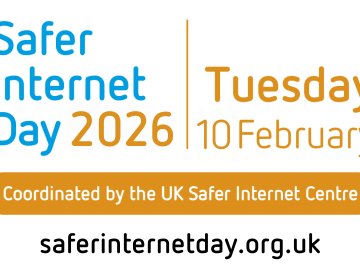While the kids are sharpening pencils and queuing up in Clarkes, parents are excited to wave them off back to school, teachers are preparing lesson and seating plans, and the IT manager is trying desperately to review the AUP. The calm before the storm. Here I have put together what I consider to be the top 5 useful places and spaces for first line response when dealing with an online safety issue.
Sexting guidance
Let’s face It sexting is probably one of the more awkward situations to deal with, when is it appropriate for you to look at the image in question, or should you just report it to the police? But you don’t want to waste police time and do CEOP or the IWF need to know? So many intricacies and in between knowing that and what the value of X truly is, you can be forgiven for flapping and maybe not knowing the best way forward. Fortunately at SWGfL we have put together some guidance on how to best deal with any sexting scenario and even better it fits into one poster, perfect for the staff room. You can order yourself a poster here; or just check out the pdf here;
Common Sense Media
OK so what the hell is MSP and is it safe for the kids in my class to be playing it? Common sense media is just one of the most helpful websites out there for giving you a breakdown of nearly every app, game and social media available to kids. They will give you an explanation of what it is/does, reviews from parents and kids with a score out of 5 for things like sex, violence and drugs etc. It’s an American site so bare that in mind but generally I find this a great source of balanced opinion and what you need to know.
School AUP (Acceptable Use Policy)
The school AUP, hopefully not written solely but the IT manager, this should be a communal policy there to protect both students and staff. It is really important to familiarise yourself with it, most policies will outline what is and isn’t acceptable with regards to online activity and what the repercussions are should someone act outside of the policy. If you feel like something is wrong check it with the policy and plan from there. It may also be worth you drawing up your own and sticking to it, for example, what will you do if a pupil you got on well with requested you as a friend on Facebook 2 years after leaving school? This is totally up to you, and there is no wrong or right answer but it’s good to have a party line and stick to it.
POSH (Professional Online Safety Helpline)
We are here Monday to Friday 10 - 4 by phone, email, Facebook message and so on. Use us even if it for the silliest of things, this is what we are here for and we’re funded by the EU so make the most of it while you can.. I jest.. but seriously if I told you there were a whole team of people just say by the phone waiting to answer your online safety queries would you believe me? You Should! We work really closely with the big industry players like Facebook, Instagram, Snapchat etc. This means that if there were something on FB for example that we knew violated their T’s& C’s but you just couldn’t get it down, we have the escalation routes to ensure it is. It also enables us to create some brilliant privacy checklists that you can find here; fab for students, staff and parents.
Reporting routes
Empower yourself and your students to repot content that you don’t think should be online. It’s the first step and even though it doesn’t always work it’s good to know that you have taken all the steps you can. Here are some info pages from some of the main players on how to report on their platform;
Facebook Instagram Twitter Kik Snapchat
I hope you’re feeling ready and rearing to go back to school and you find some or all of this useful. Just remember, only 7 weeks until half term!






